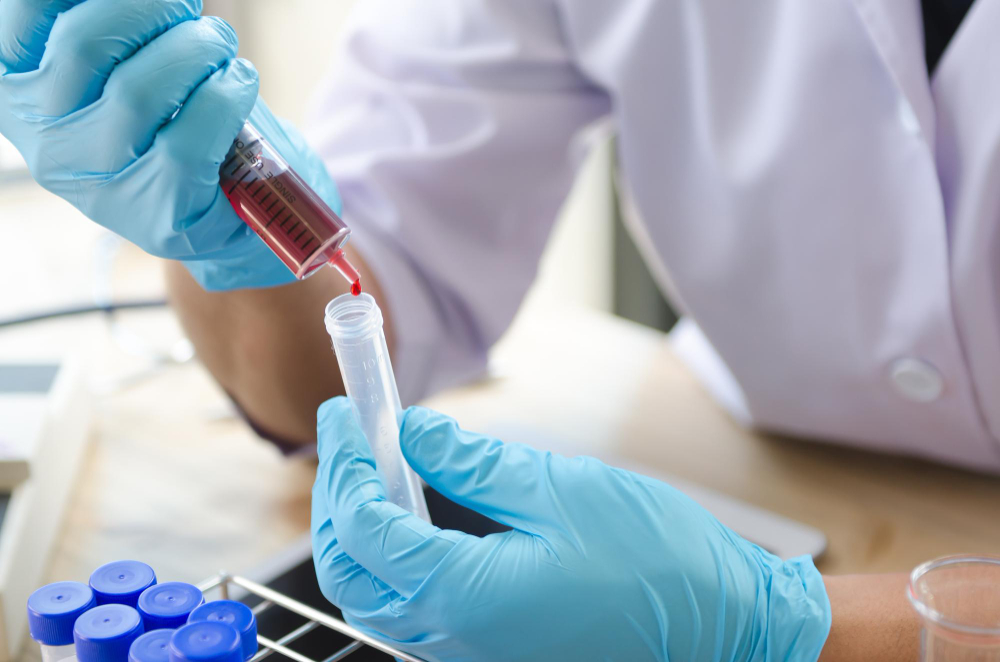A serum calcium test measures the amount of calcium in your blood. This test is important because calcium helps your body in many ways. For example, it keeps your bones strong, helps your muscles work, and supports your heart. Doctors may recommend a serum calcium test if you have certain symptoms or as part of a routine checkup. Understanding your results can help you stay healthy and spot problems early.
What Is a Serum Calcium Test?
A serum calcium test is a simple blood test. It checks how much calcium is in your blood. Calcium is a mineral your body needs for healthy bones, teeth, nerves, and muscles. This test helps doctors see if your calcium level is normal. Sometimes, it can show if there is a problem with your bones, kidneys, or other parts of your body.
Why Is a Serum Calcium Test Done?
Doctors order a serum calcium blood test for many reasons. Often, it is part of a routine health check. However, it can also help find the cause of certain symptoms or monitor health conditions. Common reasons include:Checking for symptoms like muscle cramps, tingling, or weaknessLooking for signs of kidney disease or bone problemsMonitoring conditions like cancer or thyroid diseaseWatching the effects of certain medicinesScreening for high calcium symptoms, such as nausea or confusion
How Is the Serum Calcium Test Performed?
The serum calcium test is quick and simple. Here is what usually happens:First, a nurse or technician cleans your arm with alcohol.Next, they wrap a band around your upper arm to make the vein stand out.Then, they insert a small needle into your vein and collect a blood sample.After that, they remove the needle and put a small bandage on your arm.Finally, your blood sample goes to a lab for testing.
The whole process takes just a few minutes. Most people feel only a quick pinch.
Understanding Your Serum Calcium Test Results
Your doctor will explain your serum calcium test results. Normal calcium levels in adults are usually between 8.5 and 10.2 milligrams per deciliter (mg/dL). However, these numbers can vary slightly by lab.
If your calcium level is not normal, it may mean:High calcium (hypercalcemia): This can happen due to overactive parathyroid glands, certain cancers, too much vitamin D, or some medicines.Low calcium (hypocalcemia): This may be caused by kidney disease, low vitamin D, or problems with your parathyroid glands.
Some causes of abnormal results include:Parathyroid gland problemsKidney diseaseVitamin D issuesCertain cancersSide effects from medicines
Always talk to your doctor about what your results mean for you.
How to Prepare for a Serum Calcium Test
Preparing for a serum calcium test is easy. Still, you should follow these tips:Tell your doctor about all medicines and supplements you take.Ask if you need to stop any medicines before the test.Usually, you do not need to fast, but check with your doctor.Drink water before the test to help your veins show up.
For more details, ask your healthcare provider how to prepare for a calcium test.
Risks and Considerations
The serum calcium blood test is very safe. However, like any blood test, there are small risks. You might feel a little pain or see a small bruise where the needle went in. Rarely, some people may feel dizzy or faint. If you have any concerns, talk to your doctor before the test.
Frequently Asked Questions
Is the serum calcium test painful? Most people feel only a quick pinch. The pain is mild and goes away fast.Do I need to fast before the test? Usually, fasting is not needed. However, your doctor will tell you if you should avoid food or drink.Can medicines affect my results? Yes, some medicines and supplements can change your calcium levels. Always tell your doctor what you take.How soon will I get my results? Often, results are ready in a day or two. Your doctor will contact you when they are available.What if my calcium level is high or low? Your doctor will help find the cause and suggest the next steps. Sometimes, more tests are needed.
When to Consult a Doctor
If your serum calcium test shows high or low levels, you should talk to your doctor. Also, if you have symptoms like muscle cramps, weakness, confusion, or bone pain, seek medical advice. Your doctor can explain your results and guide you on what to do next.
For personalized advice about your serum calcium test results, consult a healthcare professional.

